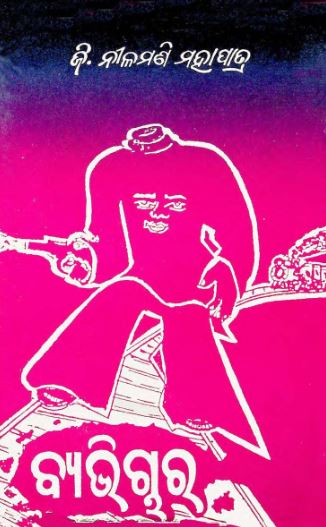Byabhichar, a poignant play authored by G. Nilamani Mahapatra, stands as a significant contribution to Odia literature. First published in 1981, with subsequent editions in 1995 and various reprints, this work showcases the author’s nuanced understanding of human emotions, societal expectations, and moral dilemmas. The term “Byabhichar” translates to “infidelity” or “adultery,” and the play delves into the complexities of love, betrayal, and the consequences of societal judgment.
The narrative of “Byabhichar” unfolds in a culturally rich backdrop that captures the essence of Odisha, interspersed with the author’s thought-provoking commentary on traditional values and contemporary realities. The plot revolves around the lives of ordinary characters who find themselves entangled in a web of love, jealousy, and moral conflict. Central to the drama are the themes of fidelity and infidelity, as the characters navigate personal desires while grappling with societal expectations.
The protagonist faces a moral crisis that challenges the very fabric of their relationships, leading to intense emotional confrontations and revelations. As the story progresses, each character’s motivations and struggles are explored with depth, prompting the audience to reflect on their perceptions of right and wrong. The unfolding drama is not merely a tale of personal betrayal but a broader commentary on the social constructs that govern human behavior.
Mahapatra’s strength lies in his ability to craft multidimensional characters. Each character is intricately developed, providing diverse perspectives on love, loyalty, and societal norms. The protagonist’s inner turmoil stands in stark contrast to the rigid expectations of family and society, making the audience empathize with their plight. The supporting characters each represent various societal viewpoints, enriching the narrative with their unique backgrounds and beliefs.
Thematic elements in “Byabhichar” are deeply woven into the plot. The play raises crucial questions about the nature of love—its boundaries, requirements, and the consequences when those boundaries are crossed. Mahapatra deftly examines notions of honor and shame, particularly how they impact individual choices and relationships. Through his exploration of infidelity, he critiques the often hypocritical moral standards imposed by society, which can lead to destructive consequences for both individuals and their families.
Mahapatra’s writing style is evocative and laced with emotional depth, utilizing poetic language that captures the essence of human experience. His dialogues are sharp and impactful, allowing for moments of tension and reflection that resonate with the audience. The play’s structure is meticulously crafted, combining dramatic tension with moments of introspection, making it not just a performance but an experience for the viewers.
Byabhichar represents not only a critical exploration of personal integrity and societal values but also a timeless reflection on human emotions. G. Nilamani Mahapatra’s work remains relevant, sparking discussions surrounding love, fidelity, and societal expectations. The dualities presented in the play encourage audiences to confront their own beliefs and biases, making “Byabhichar” a profound literary piece that continues to resonate in contemporary discourse on relationships and morality. Through its compelling narrative and rich characters, the play serves as a mirror reflecting the complexities of human nature, urging a deeper understanding of the intricate dynamics that govern our lives.
Books Info
| Books name | Byabhichar |
| Author | G Nilamani Mahapatra |
| No Of pages | 102 |
| Publisher | Banajyosna Prakashani |
| Publication | 1981, 1995, 5e. |
| Printed At | NA |
| Distributor | NA |

